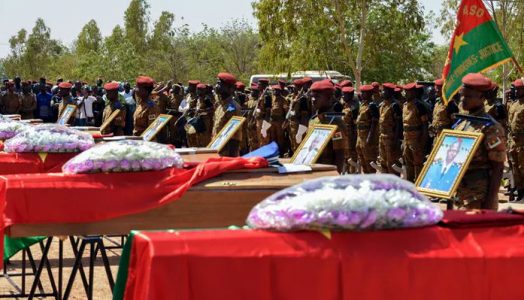
Attacks on Christians in Burkina Faso a publicity stunt for Islamic groups
Last month in northern Burkina Faso there were attacks on a church and on a procession of Catholics. These have raised fears of religious strife in a country where security remains a major challenge. These attacks follow the murder of a pastor and five congregants in Silgadji, in the north, and the kidnapping of a Catholic priest.
These events are part of a violent trend that is mostly affecting the country’s northern and eastern regions. Terrorist attacks and inter-communal conflict – like the massacre of Fulani in Yirgou (north) in early 2019 – there are concerns have many concerned for the West African nation.
Who is responsible for the violence plaguing part of Burkina Faso? Why have Christian communities become targets? To answer these questions, we must first look closely at the country’s political context.
The rise in attacks in Burkina Faso is largely attributable to the weakening of the state over the last ten years. This has been driven by political instability. For instance 2011 saw clashes between police and students and a military mutiny, during which several soldiers committed acts of theft and pillage against the populace.
With some difficulty, the then-president Blaise Compaoré eventually re-established control. He dissolved the government to appease critics. But hostilities flared up again when he proposed a change to the constitution to run in the 2015 presidential election. As parliamentarians prepared to vote on the constitutional amendment, he was overthrown in a popular uprising in 2014.
In September 2015, after a period of uncertainty during which the army temporarily took power, the Regiment of Presidential Security attempted a coup. Later that year the transitional government organised a presidential election that brought former prime minister and president of the National Assembly, Roch Marc Christian Kaboré, to the nation’s highest office.
But since his election, the government has had resistance from some groups who believe it is incapable of confronting the country’s multiple challenges.
The central powers in Burkina Faso, and the army in particular, have been substantially weakened by these crises.
In addition to domestic instability, the region is also experiencing significant insecurity, particularly neighbouring Mali. Some attacks have been claimed by Al-Qaeda, who are present in northern Mali. The weakening of the Burkinabe State means it can’t cope with the challenges within its borders or effectively police the borders, which have become very porous.
Source: The African Report





